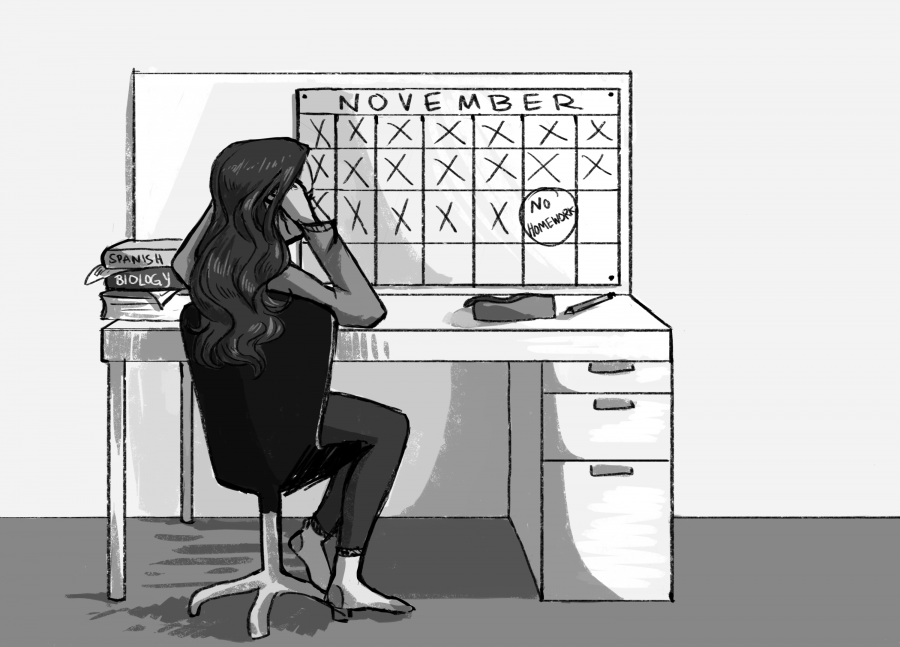I still remember how restless I was that Monday night, my mind anxiously recounting my day the way it tends to when I stare too long at the ceiling about my bed. I retrospect, it was a perfect type of day. But that day is tainted in my memory. I added cream to my coffee that morning and drew long sips, yet all the while my mind told me I didn’t deserve this.
“You should be typing your essay,” I told myself. “You should be doing your textbook reading.”
This subtle guilt crept up on me the whole day.
It was a no-homework long weekend since Monday was a Jewish holiday, and per school policy, teachers are not allowed to assign homework on religious holidays. Despite the rule, I still ended up having a considerable amount of homework that I felt I needed to be doing over the holiday, though nothing was technically due the following Tuesday. I definitely was not the only one — I heard other students joking about the so-called “no-homework” weekend and complaining about the work that they still felt compelled to do.
In some classes, teachers warned us about the high quantity of work that would be assigned Tuesday and encouraged us to utilize the weekend to get ahead. Others assigned projects and essays the week before and hinted that we would have the whole three-day weekend to be able to work. Some students said they felt pressure to study for Wednesday tests or finish work-intensive projects. Although no official due dates fell on that Tuesday, many students had plenty of work to do the night before.
Having another night of homework isn’t a big deal. What is more troubling is the sly, indirect way that teachers encourage us to do work during an extremely rare situation when we are not only granted time for ourselves but are not technically allowed to do work. No-homework holidays are rare gems, and I cherish a day when I don’t have to think about all the obligations I have. I would rather not have a no-homework holiday at all than know I have work to do when I should be relaxing.
During this particular “no-homework” holiday, I decided not to catch up on that essay that was due the next week or start that extra long reading that would haunt me Tuesday night. And instead of feeling good about granting myself a break, I felt guilty for not doing any work. However, my guilt was within reason. As I had anticipated, the week to come was extra stressful since I was technically behind in the homework cycle after not doing the highly suggested but ‘no required’ work assigned.
I understand that our teachers have our best interest in mind, and are only trying to prepare us for upcoming tests or AP exams. However, with a little bit of shifting and planning, I think it is possible to create a schedule that eliminates one night of homework without putting a disproportionately heavy burden on the next few nights. I think it is also possible to assign due dates for projects and essays without treating no-homework holidays as more nights available to work.
Students shouldn’t have to choose between feeling guilty about not doing work or feeling guilty about not relaxing. To a certain extent, it’s disrespectful to a student body that already work hard, puts in their best effort and could certainly use a break every now and then.































